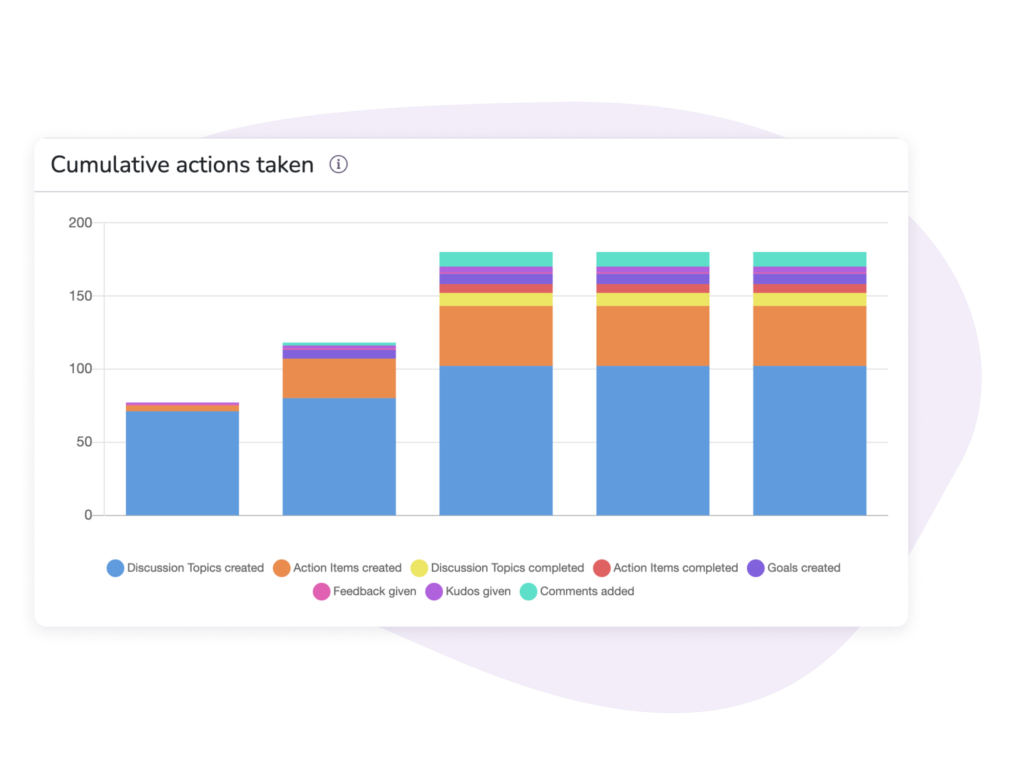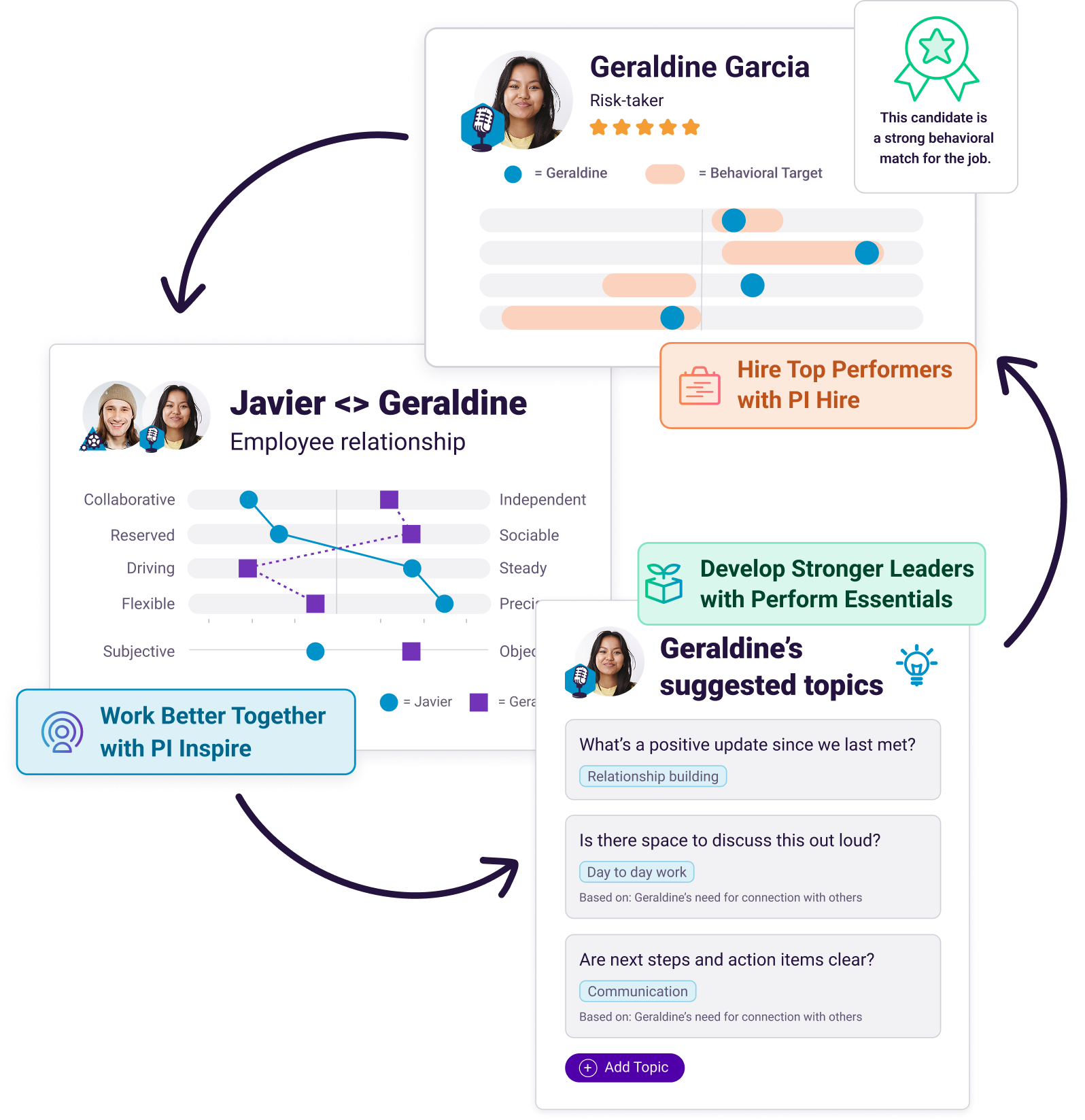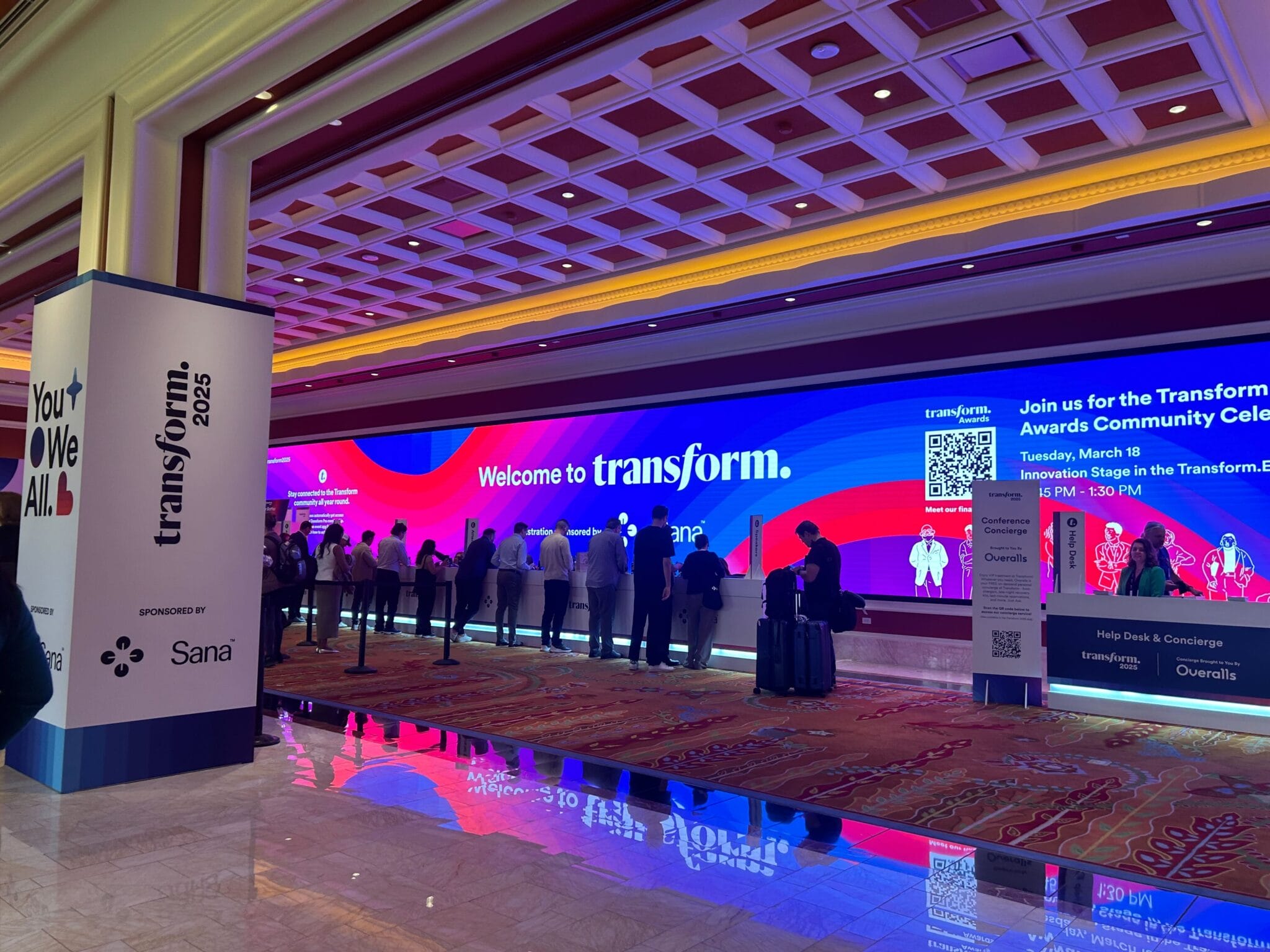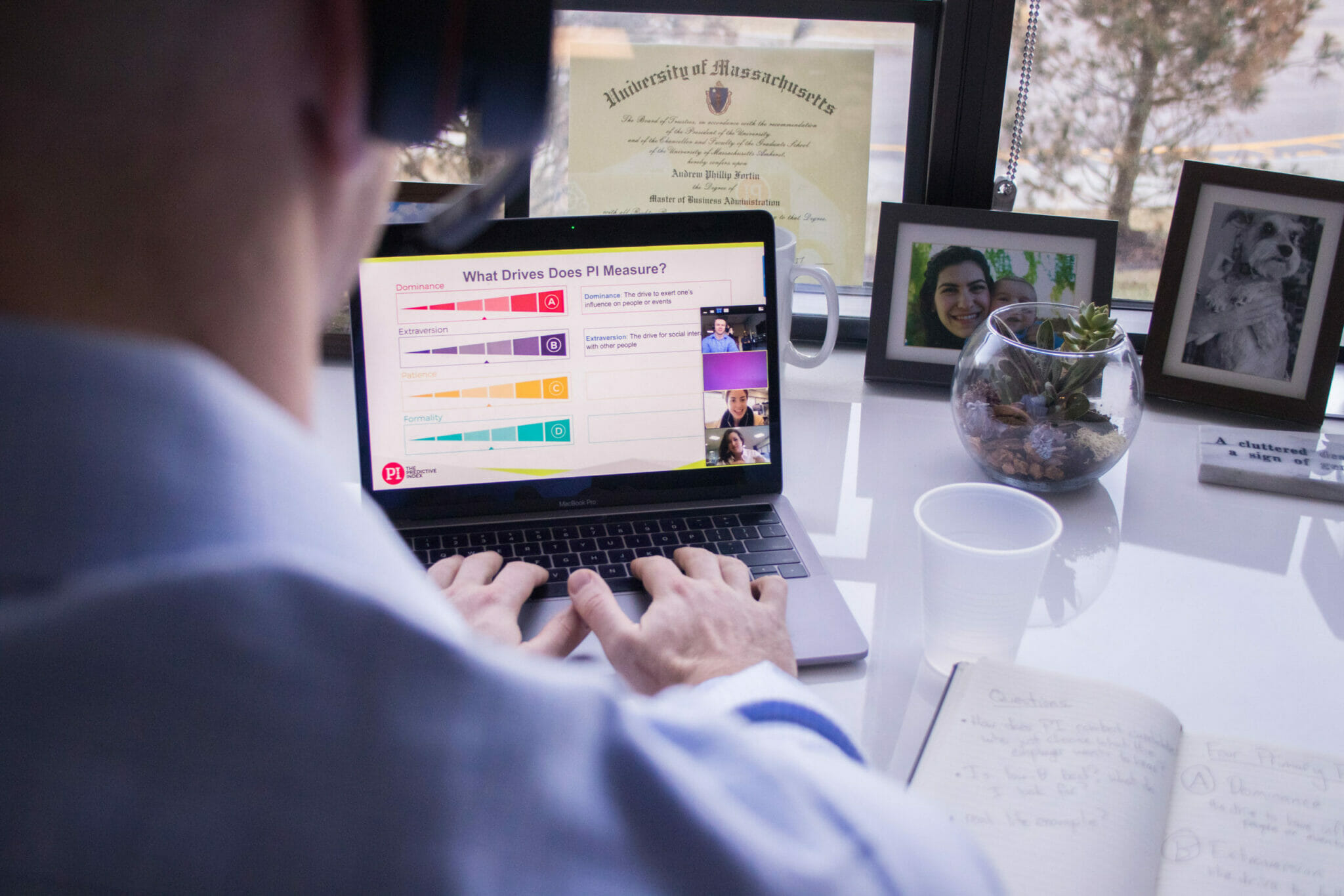The foundation of every organization is the relationship between managers and their direct reports. Historically, the mechanics of that relationship were challenging to aggregate and benchmark – often only discovered if something went wrong, after the fact.
The Manager Analytics Dashboard in PI Perform gives team leaders a comprehensive pulse for how they’re adhering to management best practices, answering questions before they’re asked, such as:
- How often are you meeting with a team member?
- Which days are your team members most productive? And how many action items are they completing or falling behind on?
- Are wins being recognized and celebrated? Are you capitalizing on ‘teachable moments’ with continuous feedback?
- How many hours are you spending in meetings per week versus focus time for your own deliverables as a manager?

Maintain positive feedback habits.
Being a “good manager” is an inherently subjective quality. Organizations have struggled for decades to quantify management effectiveness. As a daily-use platform, PI Perform is uniquely positioned to address this challenge by analyzing agendas, tasks, projects, and development goals across all meetings.
Our dashboard tracks important information such as consistency of one-on-one meetings, constructive feedback, teammate recognition, and goal setting for each team member.
The Manager Analytics Dashboard provides a high-level overview of your team’s activities, by type and trending over time.
From there, we highlight when you’re most engaged with each team member and how those interactions break down across meeting agendas and tasks.
This culminates into an accountability scorecard highlighting where you are in each of the three pillars of performance management: regular check-ins, coaching, and development.
PI Perform transforms your workspace’s meeting stats into actionable intelligence. You can now up your management game with a simple dashboard that helps you:
– Ensure that you are meeting with all your direct reports regularly.
– Take a pulse-check on whether you’re modeling positive feedback habits.
– Validate your team’s productivity with an overview of team activity.
Monitor workspace activity with ease.
It’s easy to get caught up in the day-to-day, but with the manager dashboard you can quickly see your current meeting habits, and plan accordingly. Are you ready to see how your team analytics stacks up?
Perform offers the best-practice toolkit for managers to organize, motivate, and engage their teams, beloved by managers, HR, executives, and ICs alike. Find tools to help manage agendas for one-on-one meetings and team meetings, action items, team collaboration, continuous feedback, recognition, and goals — all in one place. With PI Perfom, you can build team morale with kudos, continuous feedback, clear goal management, and more.








